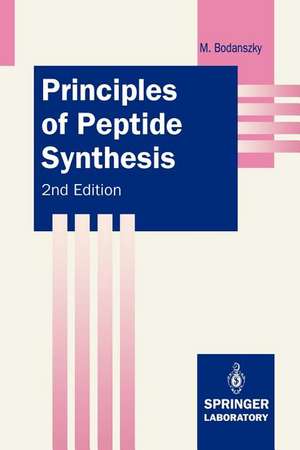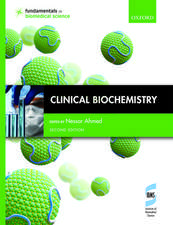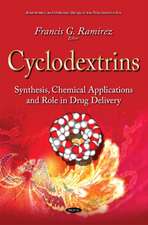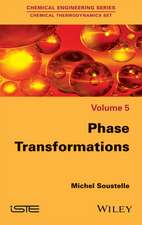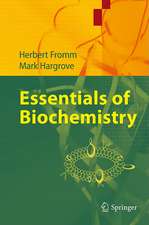Principles of Peptide Synthesis: Springer Lab Manuals
Autor Miklos Bodanszkyen Limba Engleză Paperback – 29 sep 1993
| Toate formatele și edițiile | Preț | Express |
|---|---|---|
| Paperback (1) | 783.35 lei 6-8 săpt. | |
| Springer Berlin, Heidelberg – 29 sep 1993 | 783.35 lei 6-8 săpt. | |
| Hardback (1) | 831.65 lei 6-8 săpt. | |
| De Gruyter – 31 dec 1984 | 831.65 lei 6-8 săpt. |
Din seria Springer Lab Manuals
-
 Preț: 385.84 lei
Preț: 385.84 lei -
 Preț: 362.59 lei
Preț: 362.59 lei - 18%
 Preț: 973.69 lei
Preț: 973.69 lei - 15%
 Preț: 695.85 lei
Preț: 695.85 lei - 18%
 Preț: 997.40 lei
Preț: 997.40 lei -
 Preț: 385.84 lei
Preț: 385.84 lei -
 Preț: 382.18 lei
Preț: 382.18 lei - 24%
 Preț: 1045.10 lei
Preț: 1045.10 lei - 15%
 Preț: 641.20 lei
Preț: 641.20 lei - 18%
 Preț: 939.33 lei
Preț: 939.33 lei -
 Preț: 381.43 lei
Preț: 381.43 lei - 15%
 Preț: 637.59 lei
Preț: 637.59 lei - 15%
 Preț: 639.25 lei
Preț: 639.25 lei -
 Preț: 376.68 lei
Preț: 376.68 lei - 18%
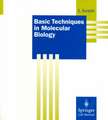 Preț: 1822.40 lei
Preț: 1822.40 lei - 18%
 Preț: 953.82 lei
Preț: 953.82 lei - 15%
 Preț: 645.14 lei
Preț: 645.14 lei - 15%
 Preț: 689.93 lei
Preț: 689.93 lei - 23%
 Preț: 821.59 lei
Preț: 821.59 lei - 19%
 Preț: 588.70 lei
Preț: 588.70 lei - 5%
 Preț: 727.44 lei
Preț: 727.44 lei - 18%
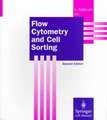 Preț: 1225.31 lei
Preț: 1225.31 lei - 15%
 Preț: 657.39 lei
Preț: 657.39 lei - 18%
 Preț: 949.73 lei
Preț: 949.73 lei -
 Preț: 386.99 lei
Preț: 386.99 lei - 15%
 Preț: 657.25 lei
Preț: 657.25 lei - 19%
 Preț: 555.63 lei
Preț: 555.63 lei -
 Preț: 380.63 lei
Preț: 380.63 lei - 18%
 Preț: 1226.11 lei
Preț: 1226.11 lei - 15%
 Preț: 649.22 lei
Preț: 649.22 lei - 15%
 Preț: 632.55 lei
Preț: 632.55 lei - 19%
 Preț: 584.77 lei
Preț: 584.77 lei - 15%
 Preț: 639.41 lei
Preț: 639.41 lei - 15%
 Preț: 644.82 lei
Preț: 644.82 lei -
 Preț: 390.25 lei
Preț: 390.25 lei - 18%
 Preț: 781.31 lei
Preț: 781.31 lei - 15%
 Preț: 644.63 lei
Preț: 644.63 lei -
 Preț: 382.36 lei
Preț: 382.36 lei -
 Preț: 363.12 lei
Preț: 363.12 lei - 18%
 Preț: 961.23 lei
Preț: 961.23 lei -
 Preț: 416.29 lei
Preț: 416.29 lei - 18%
 Preț: 791.88 lei
Preț: 791.88 lei - 15%
 Preț: 675.22 lei
Preț: 675.22 lei - 23%
 Preț: 1311.58 lei
Preț: 1311.58 lei -
 Preț: 381.43 lei
Preț: 381.43 lei
Preț: 783.35 lei
Preț vechi: 955.31 lei
-18% Nou
Puncte Express: 1175
Preț estimativ în valută:
149.91€ • 162.78$ • 125.93£
149.91€ • 162.78$ • 125.93£
Carte tipărită la comandă
Livrare economică 22 aprilie-06 mai
Preluare comenzi: 021 569.72.76
Specificații
ISBN-13: 9783540564317
ISBN-10: 3540564314
Pagini: 344
Ilustrații: XII, 329 p. 26 illus.
Dimensiuni: 155 x 235 x 18 mm
Greutate: 0.48 kg
Ediția:Softcover reprint of the original 2nd ed. 1993
Editura: Springer Berlin, Heidelberg
Colecția Springer
Seria Springer Lab Manuals
Locul publicării:Berlin, Heidelberg, Germany
ISBN-10: 3540564314
Pagini: 344
Ilustrații: XII, 329 p. 26 illus.
Dimensiuni: 155 x 235 x 18 mm
Greutate: 0.48 kg
Ediția:Softcover reprint of the original 2nd ed. 1993
Editura: Springer Berlin, Heidelberg
Colecția Springer
Seria Springer Lab Manuals
Locul publicării:Berlin, Heidelberg, Germany
Public țintă
Professional/practitionerCuprins
I. Introduction.- References.- II. Activation and Coupling.- 1 Activation.- 2 Coupling.- 3 Coupling Methods.- References.- III. Reversible Blocking of Amino and Carboxyl Groups.- 1 General Aspects.- 2 Protection of the Carboxyl Group.- 3 Protection of the Amino Group.- References.- IV. Semipermanent Protection of Side Chain Functions.- 1 Carboxyl Groups of Aspartyl and Glutamyl Residues.- 2 Side Chain Amino Groups of Lysine and Ornithine.- 3 Hydroxyl Groups in Serine, Threonine and Tyrosine.- 4 The Sulfhydryl Group in Cysteine.- 5 The Guanidino Group of Arginine.- 6 Imidazole in Histidine.- 7 The Thioether in Methionine.- 8 The Indole Nitrogen in Tryptophan.- 9 The Carboxamide Groups in Asparagine and Glutamine.- References.- V. Side Reactions in Peptide Synthesis.- 1 Side Reactions Initiated by Proton Abstraction.- 2 Side Reactions Initiated by Protonation.- 3 Side Reactions Due to Overactivation.- 4 Side Reactions Related to Individual Amino Acid Residues.- References.- VI. Tactics and Strategy in Peptide Synthesis.- 1 Tactics.- 2 Strategies.- 3 Disulfide Bridges.- 4 Synthesis of Cyclic Peptides.- 5 Sequential Polypeptides.- 6 Partial Synthesis (Semisynthesis).- References.- VII. Techniques for the Facilitation of Peptide Synthesis.- 1 Solid Phase Peptide Synthesis (SPPS).- 2 Synthesis in Solution.- References.- VIII Recent Developments, New Trends.- 1 Formation of the Peptide Bond.- 2 Protecting Groups.- 3 Solid Phase Peptide Synthesis.- 4 Undesired Reactions in Peptide Synthesis.- 5 New Trends and Perspectives.- References.
